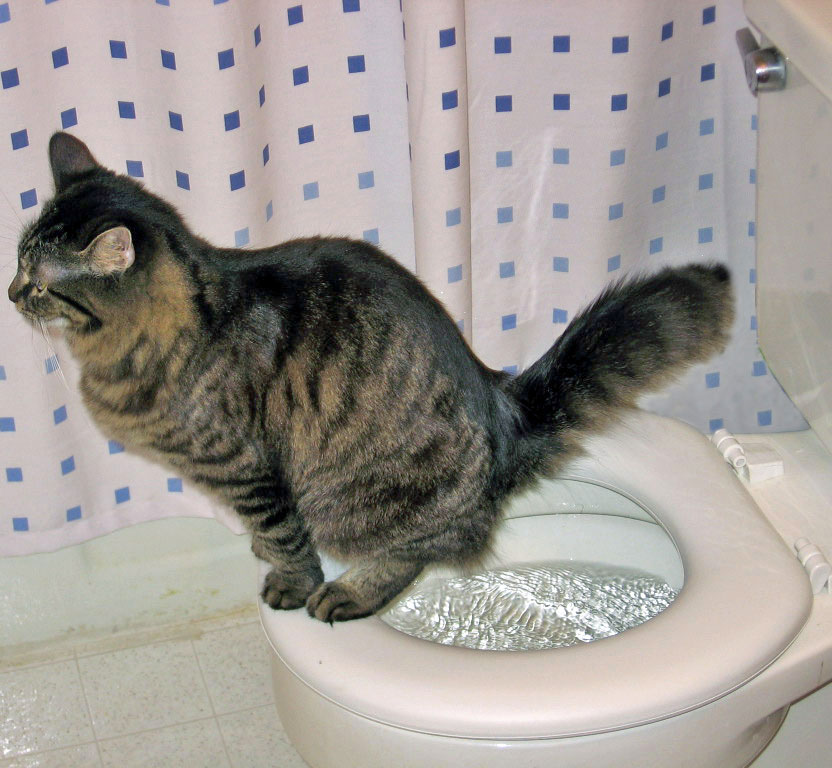Why You Should Never Flush Cat Poop Down Your Toilet - Critical Information
Why You Should Never Flush Cat Poop Down Your Toilet - Critical Information
Blog Article
Just about everyone has their unique theory about Can You Flush Cat Poo or Litter Down the Toilet?.

Intro
As feline proprietors, it's necessary to be mindful of just how we get rid of our feline pals' waste. While it may seem convenient to purge feline poop down the toilet, this practice can have harmful consequences for both the setting and human health.
Alternatives to Flushing
Fortunately, there are more secure and extra accountable ways to dispose of feline poop. Consider the adhering to alternatives:
1. Scoop and Dispose in Trash
One of the most typical approach of disposing of feline poop is to scoop it right into a biodegradable bag and toss it in the trash. Make sure to use a specialized clutter scoop and throw away the waste promptly.
2. Use Biodegradable Litter
Opt for biodegradable feline trash made from products such as corn or wheat. These clutters are eco-friendly and can be securely thrown away in the garbage.
3. Hide in the Yard
If you have a lawn, take into consideration hiding pet cat waste in a marked location far from veggie gardens and water sources. Be sure to dig deep adequate to avoid contamination of groundwater.
4. Mount a Pet Waste Disposal System
Buy a pet garbage disposal system specifically made for feline waste. These systems utilize enzymes to break down the waste, minimizing odor and environmental effect.
Health Risks
Along with ecological worries, flushing feline waste can likewise posture wellness threats to human beings. Cat feces may consist of Toxoplasma gondii, a bloodsucker that can create toxoplasmosis-- a possibly extreme ailment, specifically for expectant ladies and people with weakened immune systems.
Ecological Impact
Purging cat poop presents hazardous microorganisms and parasites into the water supply, posing a considerable danger to aquatic ecological communities. These impurities can negatively influence marine life and compromise water top quality.
Verdict
Accountable pet dog ownership expands past offering food and sanctuary-- it also includes correct waste administration. By avoiding purging pet cat poop down the toilet and opting for alternate disposal techniques, we can decrease our ecological footprint and safeguard human health.
Why Can’t I Flush Cat Poop?
It Spreads a Parasite
Cats are frequently infected with a parasite called toxoplasma gondii. The parasite causes an infection called toxoplasmosis. It is usually harmless to cats. The parasite only uses cat poop as a host for its eggs. Otherwise, the cat’s immune system usually keeps the infection at low enough levels to maintain its own health. But it does not stop the develop of eggs. These eggs are tiny and surprisingly tough. They may survive for a year before they begin to grow. But that’s the problem.
Our wastewater system is not designed to deal with toxoplasmosis eggs. Instead, most eggs will flush from your toilet into sewers and wastewater management plants. After the sewage is treated for many other harmful things in it, it is typically released into local rivers, lakes, or oceans. Here, the toxoplasmosis eggs can find new hosts, including starfish, crabs, otters, and many other wildlife. For many, this is a significant risk to their health. Toxoplasmosis can also end up infecting water sources that are important for agriculture, which means our deer, pigs, and sheep can get infected too.
Is There Risk to Humans?
There can be a risk to human life from flushing cat poop down the toilet. If you do so, the parasites from your cat’s poop can end up in shellfish, game animals, or livestock. If this meat is then served raw or undercooked, the people who eat it can get sick.
In fact, according to the CDC, 40 million people in the United States are infected with toxoplasma gondii. They get it from exposure to infected seafood, or from some kind of cat poop contamination, like drinking from a stream that is contaminated or touching anything that has come into contact with cat poop. That includes just cleaning a cat litter box.
Most people who get infected with these parasites will not develop any symptoms. However, for pregnant women or for those with compromised immune systems, the parasite can cause severe health problems.
How to Handle Cat Poop
The best way to handle cat poop is actually to clean the box more often. The eggs that the parasite sheds will not become active until one to five days after the cat poops. That means that if you clean daily, you’re much less likely to come into direct contact with infectious eggs.
That said, always dispose of cat poop in the garbage and not down the toilet. Wash your hands before and after you clean the litter box, and bring the bag of poop right outside to your garbage bins.
https://trenchlesssolutionsusa.com/why-cant-i-flush-cat-poop/

I discovered that review on How to Dispose of Cat Poop and Litter Without Plastic Bags while surfing the internet. Sharing is good. Helping others is fun. Thanks for your time. Come back soon.
Book Today Report this page